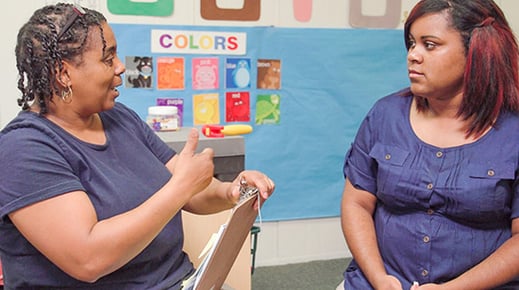
Recently I overheard someone say they were going to “do CLASS.” This caught my attention, mostly because it's not the first time I've heard this phrase—or the first time I found it confusing. Hearing it again made me realize that a conversation on “doing CLASS" might be useful.
So where does this phrase come from? I've heard that some folks believe a CLASS Observation Training alone will improve adult-child interactions, or potentially boost Instructional Support scores. Maybe this is what is meant by “do CLASS”? While training definitely puts a spotlight on specific behaviors and definitions of quality interactions, this two-day experience will not guarantee that higher quality interactions will be implemented in the classroom—at least not in the deep, frequent, sustained way that is required to impact child outcomes. The observation trainings are designed to bring observers to reliability on the tool. We know from practice, as well as research, that ongoing professional development, which includes self-reflection and study, is the way to improve our interactions.
I recently attended several presentations on strategies around leveraging the CLASS indicators and behavioral markers during specific activities or times of the day. Could this be “doing CLASS”? While asking open-ended questions during a storybook reading is critical to encouraging children to think deeply and share their ideas, we have to remember that the CLASS domains overlay every context, every situation, every activity. To apply what we know about Concept Development, Language Modeling, and/or Quality of Feedback to only certain events is to curtail the power of conversations we are having all day with our children.
In order to really "do CLASS," programs and agencies should consider the full spectrum of the CLASS system: Learn, Measure, Improve. We know from extensive field work that quality measurement and improvement efforts absolutely depend on stakeholders learning about the CLASS tool and having knowledge of its domains, dimensions, indicators, and behavioral markers. CLASS-based programming is a process of applying our knowledge of what impacts child outcome to our daily work, at all times.
Let’s keep CLASS dynamic. It is not yet one more static task or thing “to do” and get done. It is a way to teach, to process, to reflect, to interact, and to live!

